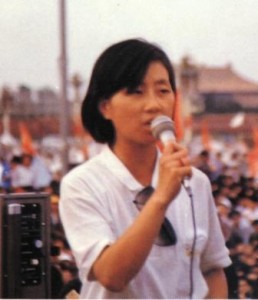I spent a lot of years working in elementary and secondary schools. The schemes and ideas that students thought were fresh and new, I would see year after year. They thought they were being clever; I thought they were being kids. The one issue that was a constant is what I call “pushing the line”. Students wouldn’t necessarily cross a line that I had set, but they would always push it. Not so much that it would seem like a big problem, just enough to get a little more free time, do a little bit less work, or maybe get a few more marks. (To be honest, I often allowed time, after essential work was done, to do something fun but still subject-related, and I usually allowed some way for them to earn bonus marks on tests.) The problem is that once you allow the line to move a little bit, the students know it’s moveable. The next time it moves a little more, then a little more…. Before long, you can’t remember where the line used to be. The solution that I shared with my teacher candidates at the beginning of every year was to set your line where you’re comfortable with it, and don’t let the students move it. If you stick to it for the first month or two, they’ll realize it doesn’t move, and the rest of the school year will be much more pleasant.
I have known some Christians who treat God’s standards the same way. They try to push the line on whatever rules they have in their mind as “God’s rules”, taught by their parents, their church, their school, or even possibly the rules they have just imagined in their own minds. This often happens when young people leave home and go off to university or take what is now commonly known as a gap year. Things they didn’t do while they lived in their parents’ home, they can now make their own choices about. They try something, or a few things, for the first time. That wasn’t so bad. The sky didn’t fall. No one even had to know. But then the line moves. And before long they don’t remember where the line used to be.
So many of those things that they made choices about aren’t spelled out specifically in the Bible. The rules aren’t clear. What is a person to do? How much is okay? That is not the right way to approach the issue. The question should not be, “How far can I push the limits before God’s grace doesn’t apply to me anymore?” Our perspective should be, “God sacrificed His only Son. Jesus was willing to give His life to pay for all of my sins—past, present and future. What can I do to show God how grateful I am, how much I love Him?”
In Jesus’ last words to His disciples before He was arrested, tried and crucified, He said that He set Himself apart on behalf of His disciples, so that they may be truly set apart. (John 17:19) The word translated as “set apart” derives from the same word as sanctify, saint and holy. It means to be completed dedicated to God. Jesus was so dedicated to God that He was willing to suffer and die, so that we wouldn’t have to. Because He did, we can have the same status with our Heavenly Father that Jesus does. John 17:20 very clearly indicates that Jesus is praying this prayer on behalf of all who believe. Jesus prays that we will separate ourselves from the world and be one with Him just as He is one with the Father. (John 17:21)
If we want to do just enough to “get by”, we need only accept the gift of Christ’s sacrifice. Our soul and spirit will be sanctified—set apart and made holy by His effort. But we still make the choices of what we do with our body—our words, actions, attitudes. Do you love Jesus enough, appreciate Him enough, to want to glorify Him with what you do? To glorify Him means to make Him known to the world around us. Does the world see a difference in us, or are we giving in to the pressure to be just like them? Jesus set Himself apart so that we too may be truly set apart. (John 17:19)





